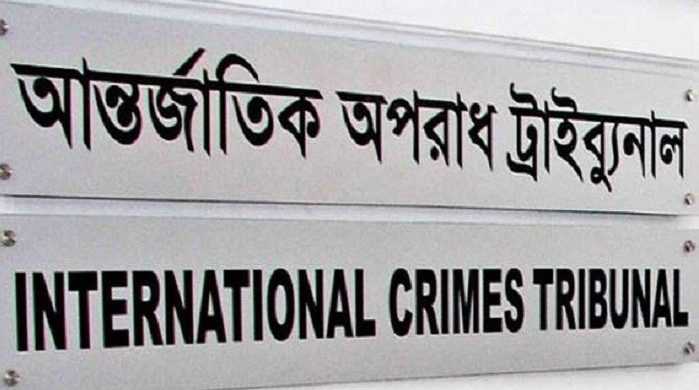The interim government has prepared a draft to amend the International Crimes (Tribunals) Act, 1973, introducing a provision to ban political parties for up to 10 years for crimes against humanity and genocide.
Prepared by the law ministry, the draft amendment also allows the trial of leaders of any organisation for command responsibility, the appointment of foreign lawyers and the recording and broadcast of trial proceedings.
The move to amend the Act comes as the government aims to prosecute those responsible for the crimes committed during the suppression of the July uprising, which ultimately led to the downfall of Awami League government.
According to the United Nations Office of the High Commissioner for Human Rights (OHCHR), more than 600 people were killed between 16 July and 11 August.
The law ministry proposes amending three sections — 3(2)(a), 4(2), and 19 — as well as introducing three new sections — 4(A), 13(A), and 20(A) — and two new sub-sections — sub-section (3) under section 3 and sub-section (2) under section 12.
It proposed changing the definition of crimes against humanity in section 3(2)(a).
As per the existing law, crimes against humanity include murder, extermination, enslavement, deportation, imprisonment, abduction, confinement, torture, rape or other inhumane acts committed against any civilian population or persecutions on political, racial, ethnic or religious grounds, whether or not in violation of the domestic law of the country where perpetrated.
The proposed amendment states that crimes against humanity would involve murder, extermination, enslavement, deportation, imprisonment, abduction, confinement, enforced disappearance, torture, rape, gender based violence, sexual slavery, enforced prostitution, forced pregnancy, enforced sterilisation or other inhumane acts committed as part of a widespread or systematic attack against any civilian population or persecutions on political, racial, ethnic, gender, cultural or religious grounds, whether or not in violation of the domestic law of the country where perpetrated.
Section 4(2) of the existing act, which deals with command responsibility, states that any commander or superior officer who orders, permits, acquiesces or participates in the commission of any of the crimes specified in section 3 or is connected with any plans and activities involving the commission of such crimes or who fails or omits to discharge his duty to maintain discipline or to control or supervise the actions of the persons under his command or his subordinates, whereby such persons or subordinates or any of them commit any such crimes, or who fails to take necessary measures to prevent the commission of such crimes, is guilty of such crimes.
To this section, the draft amendment adds “leader of an organisation, association, entity, or organised group” in the act along with any commander or superior leader.
Section 19(1) of the existing act states that the tribunal shall not be bound by technical rules of evidence and may admit any evidence, including reports and photographs published in newspapers, periodicals and magazines, films and tape-recordings and other materials as may be tendered before it, which it deems to have probative value.
The draft adds that data or information generated, prepared, sent, received, or stored in magnetic, electromagnetic, optical, or computer memory; audio and video recordings; Digital Versatile Disc (DVD), Digital Video Disc (DVD); records from mobile phones; hardware, software, or any other digital device may also be tendered before it, which it deems to have probative value.
The draft added sub-section (3) under section 3 that states, “For the purpose of determining liability under sub-section (2), the Tribunal shall have regard to the Elements of Crime of the International Criminal Court (ICC), as adopted pursuant to Article 9 of the Rome Statute of the International Criminal Court, to the extent that they are not inconsistent with the provisions of this act.”
It also proposed to add sub-section (2) under section 12 that states, “Notwithstanding anything contained in the Bangladesh Legal Practitioners and Bar Council Order, 1972 (President’s Order) (President’s Order No. 46 of 1972), the Tribunal may allow foreign counsel to appear before it, subject to its satisfaction that such counsel has at least 10 years’ experience in the practice of international criminal law.”
The draft introduces section 4(A) which states, “The Tribunal may decide to make an audio-visual recording of a hearing or part thereof. The Tribunal may decide to make available an audio or video broadcast of a hearing, or part thereof, via the Internet or other means, in accordance with any conditions set by the court to protect the safety, privacy, and dignity of participants.”
Another proposed section 13(A) states, “Representatives from foreign governments, non-governmental organisations (NGOs), and international bodies may attend public hearings, trials, and other proceedings of the Tribunal, subject to its prior approval and accreditation.”
The draft amendment also proposed section 20(A) which deals with the prohibition of political organisations engaged in international crimes and states, “Notwithstanding anything contained in any other law for the time being in force, if any political organisation is found to have committed, aided, abetted, or facilitated the commission of any of the crimes under section 3 of this act, such organisation shall be subject to a ban for a period not exceeding 10 years.”
It also says the ban imposed under this section shall include all activities of the organisation, including but not limited to: (a) participation in elections; (b) organising meetings, rallies, or any form of public gathering; (c) use of media and digital platforms for propaganda or communication; and (d) collection of funds and conducting any financial transactions.
Any person acting in contravention of the ban imposed under this section shall be liable to penalties as determined by the Tribunal, the section states.
The Tribunal, however, may, at its discretion, reduce the period of the ban upon an application filed by the organisation concerned, provided that it can demonstrate substantial reforms and compliance with the principles of international humanitarian law and human rights, it added.
Courtesy: Daily Star

















